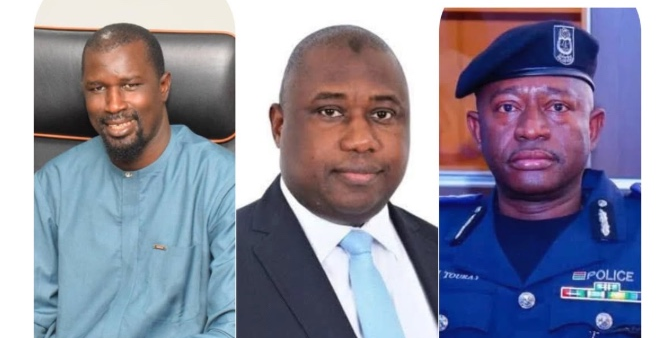State Law Office has filed its statement of defence in the lawsuit against the Attorney General (1st Defendant) and the Inspector General of Police (2nd Defendant) at the Supreme Court in the suit brought by former Auditor General, Modou Ceesay (Plaintiff).
The case, filed challenges the decision and the circumstances in which the plaintiff Modou Ceesay ceased to hold the position of Auditor General.
The defence, statement submitted on the 20th October 2025, is supported by an Affidavit sworn by Mod K Ceesay, who identified himself as the Chief of Staff and Minister of Presidential Affairs.
Mod K. Ceesay asserts in his affidavit that he is authorised by the defendants to depose to the statement, and he affirms that the facts contained in paragraphs 1 to 34 of the Defendants’ Statement of case are true to the best of his knowledge and belief.
The State’s case anchors on the argument that Modou Ceesay was not removed but rather relinquished his office as Auditor General upon accepting a ministerial appointment and denies the claim of Presidential removal.
The Defendants categorically deny that the Plaintiff was wasn’t removed by the President at any time. They admit that the grounds for removal of an Auditor General are prescribed by the Constitution and statute.
The Defendants assert that the Plaintiff was issued an appointment to the Office of Minister on the 10th of September 2025, to take effect from the said date. They claim the Plaintiff accepted the offer during discussions with the President and was “very appreciative” of the appointment as Minister of Trade, Industry, Regional Integration & Employment.
The Defendant’s statement stated that Plaintiff was told that the President appreciated his work and had earmarked him for the new position because of his skills in Finance and Investment and knowledge of the public sector.
Furthermore, the Defendants claim that to date, the Plaintiff has not written to the President declining the offer. It further asserted that following the Plaintiff’s acceptance of the Ministerial position, Cherno Amadou Sowe was appointed as the new Auditor General on the 10th September 2025.
The Defendants contend that the Plaintiff therefore “ceased to be Auditor General on the 10th September 2025 and was thereafter required to relinquish his former office. The Defence notes that Mr Sowe was unable to occupy the office because the Plaintiff continued to remain in the said office.
The Defendants also use their Statement of Case to address and deny allegations of interference with the Auditor General’s work, while raising concerns about the plaintiff’s conduct during his tenure
The Defendants deny that the President ever interfered with any audits, maintaining a policy and practice of non-interference with office-holders.
On the claims of denial to audit the National Food Security and Processing and Marketing Company, the linked it to banking confidentiality. They admit to a complaint from a senior official of the National Food Security and Processing and Marketing Company that the Plaintiff had no right to access his personal bank accounts without authorisation, arguing that it contravened the Banking Act, which prescribes confidentiality.
On the assertion that they refused to access the database of the revenue authority. The defence denies that the Plaintiff’s demand for the whole database of taxpayers, which was necessary for his official duties, was stated to risk information being compromised and was properly resisted under the Income and Value Added Tax Act.
On the forcible removal, the defence denies that the President or the 2nd Defendant (IGP) ordered the forceful removal of the Plaintiff or his eviction from the office.
On their legal issues for the Supreme Court, the Defendants’ Memorandum of Issues presented to the Supreme Court poses a legal question for determination:
1. Whether there was ever a removal of the Plaintiff from his position as Auditor General by the President?
2. Whether, having appointed Cherno Amadou Sowe as Auditor General following the Plaintiff’s appointment to the position of Minister of Trade, Industry, Regional Integration & Employment, the Plaintiff could properly remain as Auditor General?
The defendants intend to rely on the 1997 Constitution Sections 158, 159, 160 & 169, the National Audit Act, 2015, the Banking Act, and the Income and Value Added Tax Act to support their case.
They have also listed several documents they will rely on, including letters of appointment and acceptance, a State House Media Release, and a post from What’s On – Gambia


